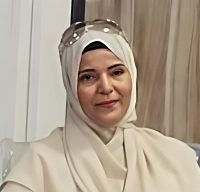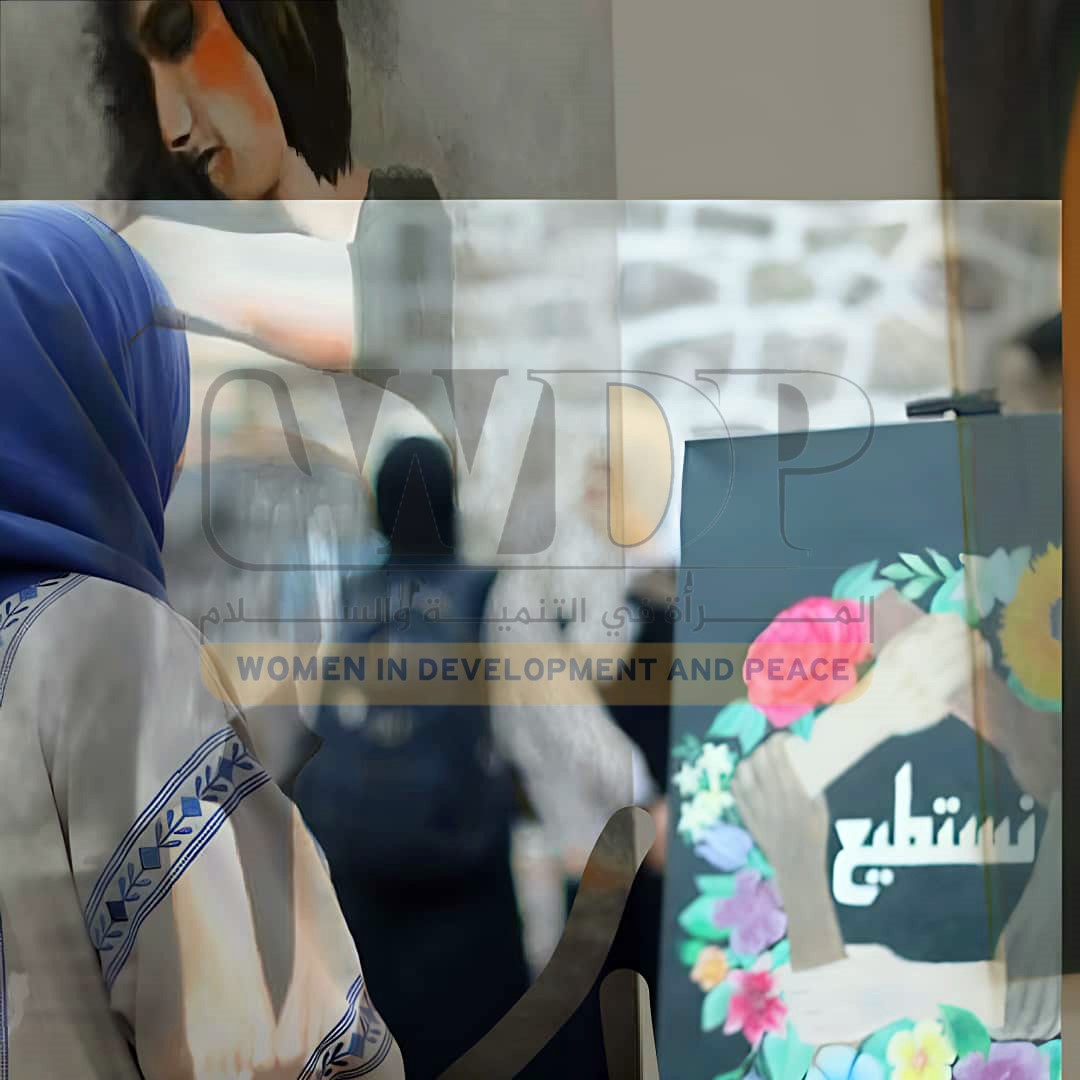
.
Dr. Salwa Braik
Director General of Women, Children, and Royal Funds at the Ministry of Justice
(Violence Against Women Advisor)
.
Women are the beings whom Islam has honored and granted a prestigious position and complete equality with men in humanity and dignity. Islam’s respect for women is not just a theory, but a practical reality that Muslim women have lived throughout history. They enjoy a high standing, extensive rights, and great responsibilities, as seen in the Holy Quran and the Prophet’s Sunnah.
Women are mothers, sisters, daughters, friends, and companions. They are the nurturers and educators of generations. No human society can be built without women. Therefore, we see women as the dynamo of life, active in all areas of construction and peace against conflict, and in humanitarian activities as well. They are the torchbearers for spreading the principles of peace and justice in the most difficult and darkest of times.
However, what we see today in ongoing conflicts, the emergence of forms of oppression, injustice, and annihilation in some countries, including Yemen, is that women are always the first victims. Despite all the hardships, Yemeni women demonstrate unparalleled courage and strength. They face political, security, economic, and social crises with patience and determination, participating in various aspects of life and contributing to rebuilding their society.
Yemeni women have undertaken numerous humanitarian efforts towards building justice and peace. They have participated in various projects across different levels and fields, occupied academic platforms, and provided generations with everything that elevates them to build communities. They have also occupied international and diplomatic positions on the global and UN stage. The voice of women has reached every corner of the world. Without the voice of women, we would not know that there are women whose rights have been violated and who have been subjected to various forms of violence, especially during periods of conflict. Without women, their efforts, their voices, and their pens that have championed women’s issues and societal issues largely, there would be no societal or international decisions and efforts to advocate for their causes.
Violence Against Women
Women in Yemen have made their voices heard in the corridors of power through many leading and prominent women who have left their mark on history. Despite facing ongoing oppression and deprivation of their rights in various aspects of life, they have challenged the odds. This is often done in the face of loopholes in laws that do not adequately protect women from violence, or due to weak enforcement of existing laws. Traditional customs and practices also continue to suppress women’s rights and exacerbate the violence they face, particularly in rural areas. Practices like female genital mutilation (FGM) are still prevalent, causing psychological and sexual harm to women. This is a major contributor to marital problems and divorce in Yemen, as confirmed by numerous statistics from organizations studying these negative phenomena. Early marriage is another harmful practice with devastating psychological, physical, and sexual consequences for girls. Most early marriages end in violence against women, leading to social problems, family breakdown, child neglect, and domestic violence from the woman’s own family, negatively impacting her children.
In rural areas, women are often denied education, leading to early marriage. Their lives can be in danger due to difficult terrain, making it challenging to access healthcare. Many women die while giving birth or seeking medical treatment, a form of social and health violence.
Root Causes of Violence Against Women in Yemen
Violence against women in Yemen is a major challenge hindering efforts to improve women’s lives and empower them in society. It casts a dark shadow over the country’s sustainable development. The roots of this serious issue lie in a complex interplay of factors, including the lack of Awareness and Social Understanding. There is a widespread lack of awareness and understanding about the severity of violence against women. In some areas, it is even considered acceptable behavior. The stigma associated with reporting violence often prevents women from seeking help, fearing social and psychological consequences.
In addition to inadequate justice procedures and insufficient legal and psychological support for survivors of violence hinder access to justice and exacerbate their suffering.
Deeply ingrained cultural and social norms contribute to violence against women. These include the entrenched belief in male dominance, which diminishes women’s value and competence. Harmful traditions like early marriage, denial of education and inheritance, and honor killings are also prevalent. These practices create a perception of women as inferior, glorifying male dominance at the expense of women’s dignity fueling violence against them.
Also, the economic factors significantly impact women. Some are forced to accept harsh conditions, such as early marriage or unsafe work environments. Financial dependence on men limits their ability to escape abusive relationships.
The current political situation has exacerbated violence against women in all Yemeni governorates. The armed conflict has fueled the problem, exposing women to severe abuses. The lack of security has emboldened perpetrators of violence, who operate with impunity. The country’s capacity to protect women from violence remains weak.
There are psychological Factors that face women as well. Men suffering from mental health issues may be driven to violence against women. It is crucial to emphasize that these factors are interconnected and cannot be isolated from one another.
Efforts to Combat Violence
Addressing violence against women in Yemen is a shared responsibility that falls on everyone—government, civil society institutions, and individuals. It requires intensive awareness campaigns, comprehensive legal reviews, and the provision of support and care services for survivors. Collaborative efforts are essential to amplify the voices of abused women, alleviate their suffering, and integrate them into society, allowing them to live stable lives in peace and security.
On the international level, the existence of UN Security Council Resolution 1325 in 2000 was a powerful call and significant effort to amplify women’s voices worldwide. It aimed to involve women in peace and justice processes across all levels. These substantial efforts did not emerge from thin air; they stemmed from the belief that women are decision-makers for peace and human justice.
Proposals to Mitigate the Severity of Violence
To enhance community awareness, change the perception of women, activate protective laws, and provide a safe environment for women, we can transform this challenge into an opportunity to build a society where everyone enjoys justice and equality. Therefore, it is essential to have proposals that significantly contribute to mitigating the severity of violence against women in Yemen and assist them in playing influential roles within the community. These proposals include the following:
- Training and Qualification Programs: Implement internal and external training and qualification programs across various fields to raise awareness among women.
- Women in Decision-Making Positions: Place women in decision-making positions to represent their voices in local and international forums.
- Specialized Centers and Safe Spaces: Establish specialized centers and safe spaces to assist women facing violence in different Yemeni governorates.
- Legal and Community Support: Provide legal and community support for women, focusing on their protection and assistance.
- Networking and Collaboration: Create networks connecting women to leverage their skills and expertise across various fields within the community.
- Reintegration of Survivors: Ensure the permanent protection of abused women during their reintegration into society, offering healthcare and psychological support.
- Effective Implementation of Security Services: Activate measures that enable women to access multiple security services through various government ministries. Introduce new laws aimed at protecting women from violence and modify existing regulations to ensure effective enforcement.
Addressing violence against women in Yemen is an urgent necessity due to humanitarian, ethical, legal, and economic reasons. Recognizing its fundamental importance in the country, we understand that reducing violence is not an easy task. However, it remains crucial for achieving sustainable development and building a just and peaceful society that respects women’s rights and dignity.

